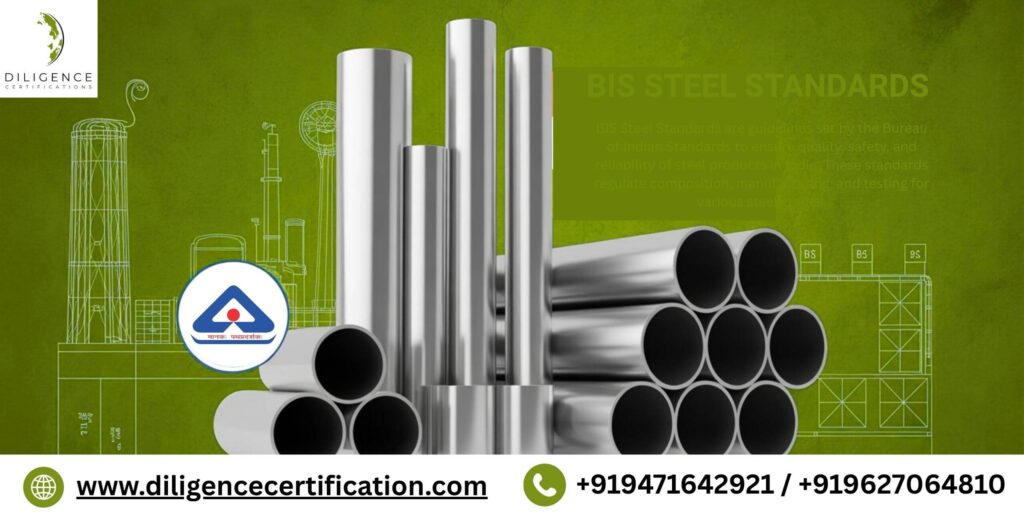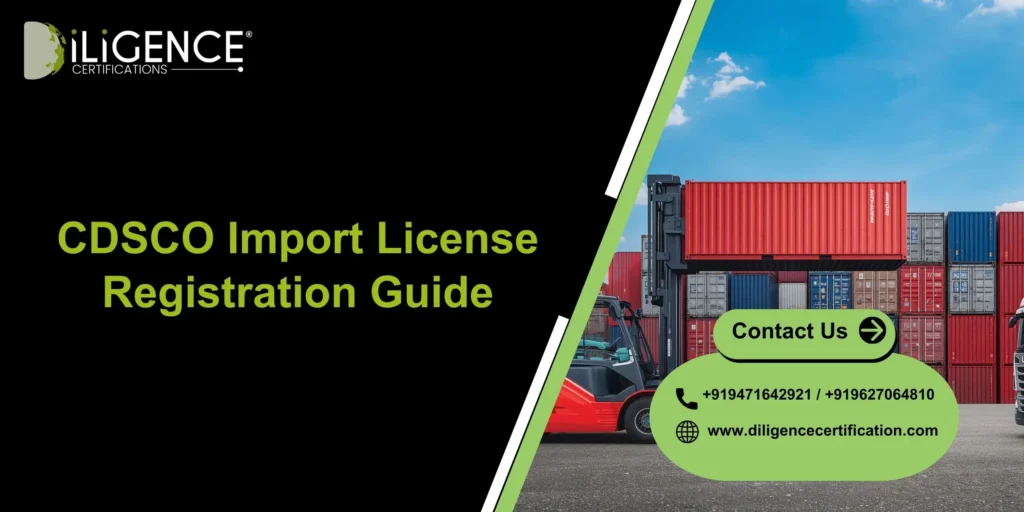- Understand BIS Steel Standards and how they shape the Indian steel industry
- Learn about IS standards for steel and BIS certification processes
- Real brand insights and expert tips to comply with Bureau of Indian Standards
Introduction

To illustrate this, I’ll share a recent conversation I had with a client, a mid-sized TMT bar manufacturer from Raipur. The client looked even more frustrated than before: “We make strong, tested bars; yet buyers demand BIS marks. If we can’t provide certain proof, they treat our metal as scrap!”
The client’s problem wasn’t new; in fact it’s something we hear all the time from steelmakers and retailers, and EPC contractors. The Indian steel industry is rapidly evolving, and one of its key pillars of this evolution is trust – or, in other words, BIS steel standards.
If you’re a manufacturer, or an importer, constructing buildings, or a fledgling startup making steel-based prefabs, working with the Bureau of Indian Standards (BIS) is no longer optional – there is no market without it, and there is no long-term viability without it, either.
This extensive blog will cover everything you need to know about BIS steel standards in 2025, with branded examples, expert suggestions, and real scenarios.
What are BIS Steel Standards?

BIS steel standards are specifications and codes issued by the Bureau of Indian Standards for ensuring the quality, safety, and reliability of steel products manufactured or sold in India.
They serve multiple purposes:
- Standardising steel grades, dimensions, and testing methods
- Protecting end-users from substandard material
- Supporting infrastructure safety and durability
- Aligning domestic steel production with global best practices
Overview of IS Standards for Steel
BIS enforces Indian Standards (IS codes) for various types of steel products. Some key examples include:
| IS Code | Steel Product | Description |
| IS 1786 | TMT Bars | High-strength deformed bars for concrete reinforcement |
| IS 2062 | Structural Steel | Steel for general structural purposes |
| IS 11513 | Hot Rolled Carbon Steel | Strips for welded tubes and pipes |
| IS 2830 | Carbon Steel Billets | Used in forging and rolling mills |
| IS 1875 | Carbon Steel Billets and Blooms | Raw material for forging and rolling applications |
Many manufacturers mistakenly assume that following a quality process internally is enough. But unless you’re aligned with these IS codes and certified by BIS, your product cannot legally carry the ISI mark.
Why BIS Certificate for Steel is Crucial in 2025?
In the post-pandemic rebound, quality assurance has become a non-negotiable for government tenders, exports, and even retail.
Major Benefits:
- Legal Compliance: Certain categories of steel are under mandatory BIS certification.
- Market Access: Many buyers, especially in infrastructure, demand ISI-marked steel only.
- Export Readiness: BIS compliance is now a benchmark in global trade inspections.
- Trust Building: The BIS logo is a mark of reliability for distributors and end-users.
Ferrite Structural Steels Pvt. Ltd., after aligning their HR coils with IS 2062 and obtaining BIS approval, saw a 42% jump in their client acquisition from central government agencies.
How BIS Certificate for Steel Works
Getting BIS certification is a multi-step, highly regulated process. It involves:
1. Identifying Applicable IS Code
Your product type determines the IS code. For example, rebar manufacturers need to comply with IS 1786, while coil producers may need IS 2062.
2. Application Submission
You submit the application to BIS via their Manakonline Portal, along with technical documents and test reports.
3. Factory Audit
BIS officials inspect the facility, review the process control and testing infrastructure.
4. Sample Testing
Samples are collected during the audit and tested in BIS-recognised labs.
5. Grant of Licence
Once test results are approved, BIS grants the license, allowing the use of the ISI mark.
Note: Foreign manufacturers must appoint an Authorized Indian Representative (AIR) and apply under the Foreign Manufacturers Certification Scheme (FMCS).

Key Challenges in BIS Certification for Steel
Despite its benefits, the journey isn’t easy. Here are some hurdles clients face:
- Mismatch in testing equipment: Many old factories lack spectrometers calibrated for BIS requirements
- Unclear IS code applicability: Manufacturers often get confused about which standard applies
- Documentation gaps: SOPs, internal test records, or quality manuals are missing
- Delays in lab results: Testing can take weeks due to backlog in BIS labs
Real Talk: “We had to redo our mill calibration thrice just to meet IS 2830 chemical composition accuracy,” shared a steel plant director from Gujarat.
Ensure Seamless BIS Certificate
Here’s what we advise our clients:
- Hire a BIS consultant early in the process to avoid errors
- Use NABL-accredited labs for pre-testing before applying
- Digitise your SOPs and testing records
- Train your QA/QC team on IS code parameters
BIS Steel Standards and Indian Construction Sector
India’s infra push—be it railways, smart cities, or highways—depends heavily on certified materials. For example:
- Metro rail projects mandate ISI-marked TMT bars (IS 1786)
- Bharatmala highways need IS 2062 structural plates
- Affordable housing schemes ask for IS-compliant rebar
Without BIS certification, you’re locked out of these high-value projects.
BIS and Indian Steel Brands
Some of India’s top steel brands are BIS-certified across multiple product lines:
- Tata Steel: Known for IS 2062 & IS 1786 compliance
- JSW Steel: BIS-certified HR coils and structural steel
- SAIL: Public sector leader, fully BIS-aligned
- Shyam Steel: Promotes BIS-compliant TMT with video-based proof
Conclusion:
BIS steel certification standards set in 2025 and beyond are not merely paperwork, they are an opportunity to improve, gain standing in the industry and build large-scale organizations.
Whether it’s from Raipur to Rourkela, or suppliers of structural steel, TMT bars, or any other product person in the entire value chain needs to embrace BIS Standards to be relevant.
BIS certification or compliance in general should not be regarded as a paperwork task, it should be looked at as a passport to quality.
You might be asking yourself how do I get started, and that’s okay. Hundreds of MSMEs had the same thought, until they took action with help. With experienced BIS consultants, clear paperwork requirements and a timeline, achieving your BIS certification will always bring opportunities for your business and not a roadblock.
With the Indian steel industry set to touch $300 billion by 2030, it’s smart to be compliant with the BIS steel standards (IS standards of steel) and other compliance requirements. Whether you are bidding for infrastructure projects/tenders, looking for international exports or building a domestic footprint it will only build trust by you having the correct BIS certification for steel.
If you seek support with the process or the “standards” requirements of the Bureau of Indian Standards, please partner with Diligence Certification who provides trusted BIS consultancy across India.
We will guide you through the process from documentation, testing, audit and licensing your steel products so they carry the ISI mark with pride.
Frequently Asked Questions (FAQ)
What is BIS Certification for Steel Products?
BIS Certification indicates that steel products are compliant with Indian Standards with respect to safety, quality, and performance.
Is BIS Certification mandatory for steel products?
Yes. It is mandatory for certain notified categories of products including TMT bars, structural steel, alloy steel, and steels used in construction.
Who can apply for BIS Certification?
Indian manufactures and foreign manufacturers can apply through an Authorized Indian Representative.
What is the certification process?
The certification process involves application submission, testing products in BIS accredited labs, factory inspections and agreement of the BIS license.
How long is the certification for ?
BIS Certification for steel products is generally for a duration of two years, and can renewed as long as compliance is maintained.
Can imported steel products be sold without BIS Certification?
No. Imported steel products will also need BIS Certification before being sold in India.
What are the key benefits of BIS Certification?
It provides quality assurance, instills trust in the customer, protects against substandard products, and enables participation in government tenders.
How long does it take to be accredited with BIS Certification?
The time to obtain BIS Certification, forms, testing and inspections will generally take 30–45 working days from application.
What are the consequences of selling uncertified steel?
Manufacturers may face heavy penalties, cancellation of licenses, product recalls, and legal action.
Where can the list of mandatory steel products be found?
The official BIS website publishes updated notifications and Quality Control Orders (QCOs) listing steel products that require certification.








 BIS Certification
BIS Certification
 CDSCO
CDSCO
 CPCB
CPCB
 LMPC
LMPC
 WPC Approval
WPC Approval
 Global Approvals
Global Approvals
 TEC
TEC
 ARAI
ARAI
 BEE
BEE
 ISO Certification
ISO Certification
 DGCA Certification
DGCA Certification
 NOC For Steel
NOC For Steel



















 Business Registration
Business Registration















 Legal Services
Legal Services
 Trademark Registration
Trademark Registration
 Copyright Registration
Copyright Registration
 Patent Registration
Patent Registration

















































